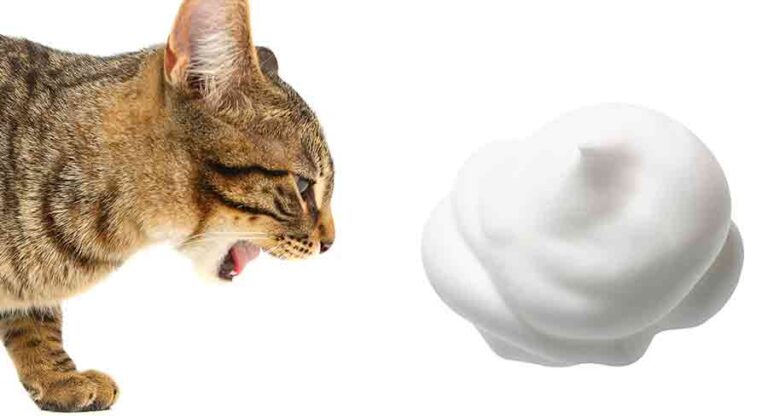Why is my cat throwing up? This article will discuss the reasons why cats may vomit and provide some tips on how to prevent and manage this common issue.
Dietary Issues

Some types of food that may trigger vomiting in cats include:
- Fatty foods: High-fat foods can be difficult for cats to digest and may cause stomach upset.
- Dairy products: Many cats are lactose intolerant and consuming dairy can lead to digestive issues.
- Human food: Feeding your cat table scraps or human food can be harmful to their digestive system and cause vomiting.
- Sudden diet changes: Abruptly switching your cat’s food can disrupt their digestive system and result in vomiting.
To address dietary issues and prevent vomiting, it’s important to provide your cat with a balanced and appropriate diet. Consult with your veterinarian to determine the best type of food for your cat’s specific needs. Gradually introduce any new foods or diet changes to allow their digestive system to adjust. Avoid giving them any foods that are known to cause stomach upset or are not suitable for feline consumption.
Remember, a healthy and well-balanced diet plays a crucial role in maintaining your cat’s overall well-being and can help prevent vomiting caused by dietary issues.
Medical Conditions

- Gastrointestinal issues: Conditions such as gastritis, pancreatitis, and inflammatory bowel disease can cause cats to vomit. These conditions often require veterinary intervention and may require medication or dietary changes to manage.
- Kidney disease: Cats with kidney disease may experience vomiting as a symptom. Kidney disease is a serious condition that requires ongoing management and treatment.
- Liver disease: Liver disease can cause cats to vomit, along with other symptoms such as jaundice and weight loss. Treatment for liver disease will depend on the specific diagnosis and may involve medications and dietary changes.
- Intestinal obstruction: When a cat has an intestinal obstruction, it may vomit as a result of the blockage. This is a medical emergency and requires immediate veterinary attention.
If your cat is vomiting frequently or if the vomit contains blood or other concerning substances, it is important to consult with a veterinarian. They will be able to perform a thorough examination and diagnostic tests to determine the underlying cause of the vomiting. Treatment options will vary depending on the specific condition, but may include medications, dietary changes, and supportive care.
Frequently Asked Questions
Why is my cat throwing up?
There can be various reasons why your cat is throwing up. It could be due to dietary issues, such as eating something that doesn’t agree with them or sudden changes in their diet. It could also be a symptom of an underlying medical condition. It’s important to monitor your cat’s vomiting and consult with a veterinarian if it persists or is accompanied by other concerning symptoms.
How can I prevent my cat from vomiting?
To prevent vomiting, ensure that your cat is on a balanced and appropriate diet. Avoid sudden changes in their food and introduce new foods gradually. Keep an eye out for any potential allergens or food sensitivities. It’s also important to provide your cat with clean and fresh water at all times. If you suspect that a certain type of food is causing the vomiting, consult with your veterinarian for dietary recommendations.
When should I be concerned about my cat’s vomiting?
If your cat’s vomiting becomes frequent, persistent, or is accompanied by other concerning symptoms such as lethargy, loss of appetite, or blood in the vomit, it’s important to seek veterinary attention. These can be signs of a more serious underlying medical condition that requires diagnosis and treatment.
Can stress or anxiety cause my cat to vomit?
Yes, stress or anxiety can contribute to vomiting in cats. Cats are sensitive creatures and changes in their environment, routine, or introduction of new pets or people can cause stress. If you suspect stress or anxiety is the cause of your cat’s vomiting, try to identify and eliminate any potential stressors. Creating a calm and secure environment for your cat can help alleviate their symptoms.
Should I induce vomiting in my cat?
No, you should never try to induce vomiting in your cat without consulting with a veterinarian first. Inducing vomiting can be dangerous and should only be done under professional guidance in specific situations.
